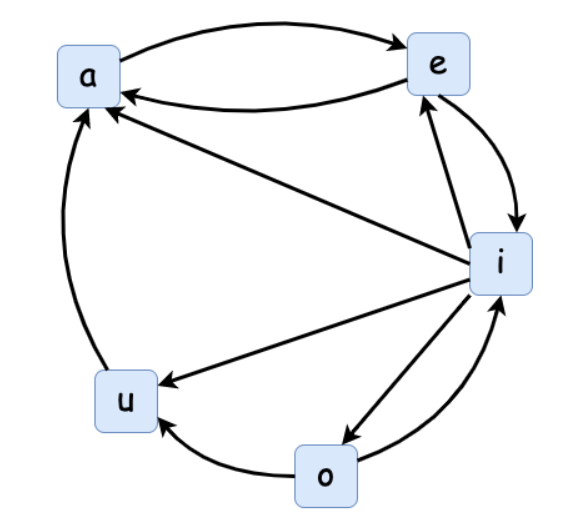Given an integer n, your task is to count how many strings of length n can be formed under the following rules:
- Each character is a lower case vowel (
'a','e','i','o','u') - Each vowel
'a'may only be followed by an'e'. - Each vowel
'e'may only be followed by an'a'or an'i'. - Each vowel
'i'may not be followed by another'i'. - Each vowel
'o'may only be followed by an'i'or a'u'. - Each vowel
'u'may only be followed by an'a'.
Since the answer may be too large, return it modulo 10^9 + 7.
Example 1:
Input: n = 1 Output: 5 Explanation: All possible strings are: "a", "e", "i" , "o" and "u".
Example 2:
Input: n = 2 Output: 10 Explanation: All possible strings are: "ae", "ea", "ei", "ia", "ie", "io", "iu", "oi", "ou" and "ua".
Example 3:
Input: n = 5 Output: 68
Constraints:
1 <= n <= 2 * 10^4
class Solution { public int countVowelPermutation(int n) { long acount = 1, ecount = 1, icount = 1, ocount = 1, ucount = 1; int mod = 1000000007; for(int i = 1; i < n; i++) { long newac = (ecount + icount + ucount) % mod; long newec = (acount + icount) % mod; long newic = (ecount + ocount) % mod; long newoc = (icount) % mod; long newuc = (icount + ocount) % mod; acount = newac; ecount = newec; icount = newic; ocount = newoc; ucount = newuc; } return (int) ((acount + ecount + icount + ocount + ucount) % mod); } }
hard??

dp, 对应的是以这个字母为结束的这么多位数的个数